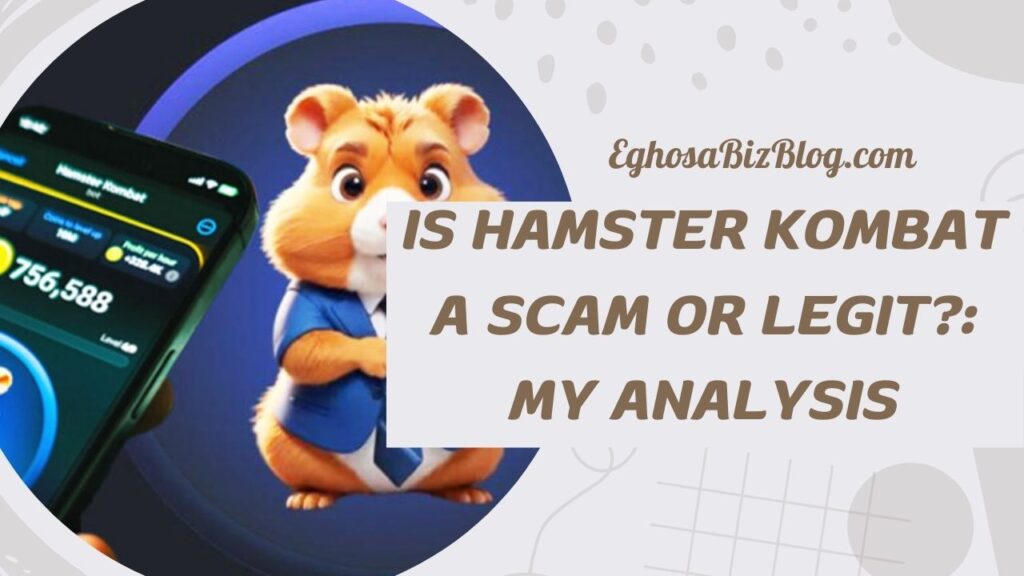
Hamster Kombat is a unique Telegram bot that has garnered attention for promising passive income through simple gameplay. Since its launch on March 25, 2024, it has attracted a massive user base, boasting over 26 million active users worldwide. You may have heard of Hamster Kombat as a “play-to-earn” platform where you engage in a clicker game to accumulate coins. But you might wonder, is it really worth your time and effort?
Despite the excitement around this bot, it’s essential to manage your expectations. As some have noted, even if you accumulate a large amount of tokens, their value may be minimal—only earning you a few dollars. For example, some estimates suggest that even after collecting tons of coins, you may only make about $10, making the opportunity more limited than it initially appears.
Furthermore, the developers recently revealed that out of 300 million registered players, only 131 million qualified for an airdrop, while 2.3 million accounts were banned for cheating. Following this announcement, the value of the $HMSTR token dropped significantly, raising further questions about its long-term viability.
Now, you may be asking the most important question: is Hamster Kombat a scam?
Table of Contents
Is Hamster Kombat a Scam or Legit: My Analysis
After closely analyzing the discourse surrounding Hamster Kombat, particularly from those who have invested time and energy into the platform, it’s clear that you may find yourself caught in a wave of uncertainty. It’s understandable.
When you’ve committed hours to mining tokens, you expect something tangible, and when that return feels underwhelming, disappointment follows. However, based on both research and personal observations, I will guide you through my analysis of whether Hamster Kombat is a scam or legitimate opportunity.
Understanding Expectations vs. Reality
Many of you who mined Hamster Kombat did so with a vision of substantial gains. In fact, you might have hoped that each token would be worth as much as $1 or more. If you held 1,000 tokens, that would translate to $1,000, a figure that seems exciting and promising. However, the reality, as we now see it, may not align with those initial expectations. On September 26, 2024, upon listing, Hamster Kombat tokens are trading at a value lower than anticipated, around $0.008 per token at the time of launch.
I know this comes as a disappointment. It’s natural to feel frustrated and question the legitimacy of the entire project, especially when the return on your investment in time and energy seems so small. But before concluding that it’s a scam, let’s dive deeper into the nature of the crypto ecosystem, particularly when it comes to blockchain-based games and token distributions.
The Nature of Crypto Listings
In the world of cryptocurrency, initial listings rarely meet the expectations set by hopeful investors. You may recall how other crypto projects followed a similar pattern, listing at low prices but gradually gaining momentum over time. For instance, Dogecoin faced a rocky start but eventually grew in value as more users joined the market and demand increased. The same applies to Hamster Kombat: while the initial value might seem discouraging, there is potential for gradual growth depending on market factors, the company’s strategy, and user engagement.
The strategy employed by Hamster Kombat to vest tokens (i.e., releasing them slowly over time rather than all at once) is designed to prevent a market crash, a scenario where too many people sell their tokens all at once, devaluing the coin. Although this may seem frustrating at first—especially when you want to realize profits—it is a mechanism that could sustain the token’s value in the long term.
Hamster Kombat’s Business Model
The game itself is part of a growing “play-to-earn” ecosystem, where you earn cryptocurrency by participating in in-game activities. You may have seen this model in other blockchain-based games, where rewards accumulate in the form of tokens that hold real-world value. While it is a new concept, the gaming world is shifting towards this model, and it holds immense promise. Hamster Kombat’s move to adopt this strategy aligns with this broader trend.
However, it’s important to understand that not every gaming or crypto project will be an immediate success. The fact that Hamster Kombat has listed its tokens and made them available for trading does signal a level of legitimacy. But, as with any emerging market, the road to significant profits may take time and patience.
Is Hamster Kombat a Scam?
From what I’ve gathered, Hamster Kombat does not appear to be a scam. The platform has distributed tokens, listed on multiple exchanges like Binance and Bybit, and has a clear business model. However, the current market value of the token is much lower than many hoped. This disappointment stems from high expectations that may have been unrealistic in such a volatile market.
Calling Hamster Kombat a scam would imply malicious intent or fraudulent activity. While the project may not have delivered the windfall you were anticipating, there is no evidence of foul play. In fact, the project’s token vesting strategy and listing process suggest that the team behind Hamster Kombat is focused on stabilizing the coin rather than inflating its value only to let it crash.
Final Verdict: Patience is Key
In conclusion, while Hamster Kombat may not have given you immediate financial rewards, it does not fit the criteria of a scam. Instead, it’s a blockchain-based gaming project in its early stages. You should give the market time to adjust and grow, keeping in mind that the value of your tokens may rise over time as demand increases and the crypto market evolves.
If you’re willing to exercise patience and hold onto your tokens, there’s a chance you might see the value increase. But, as always, the cryptocurrency market is unpredictable, and it’s important to make decisions based on thorough research and realistic expectations.



